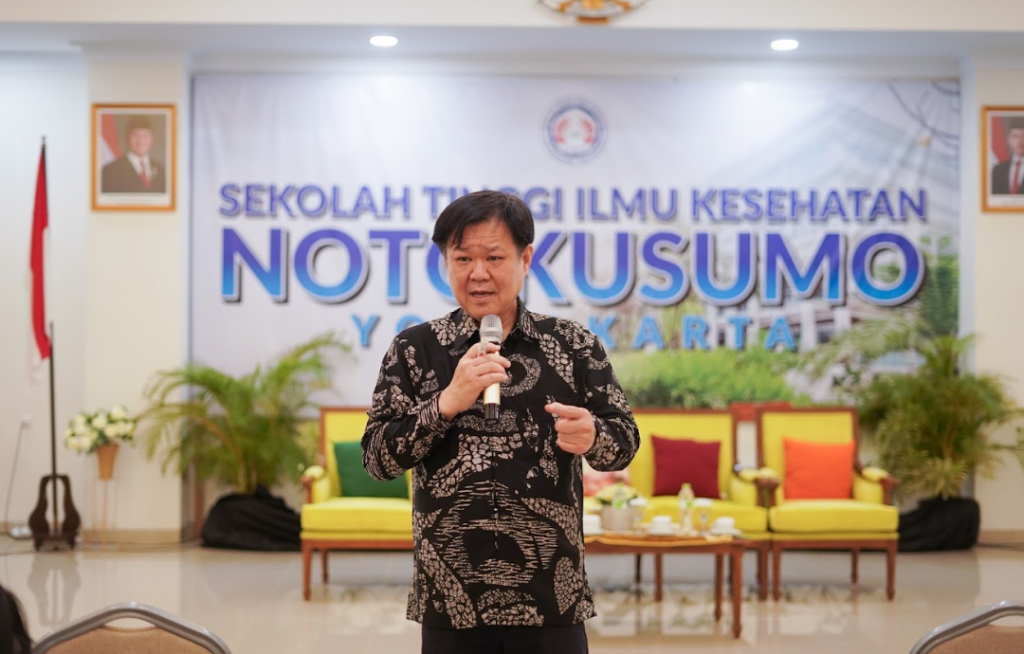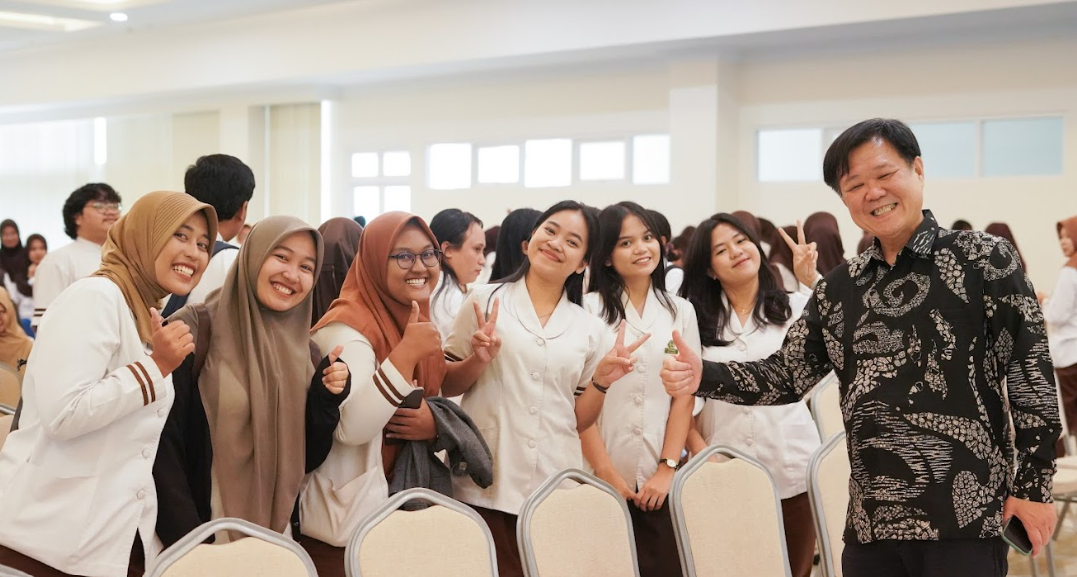Yogyakarta, October 30, 2025 — STIKES Notokusumo Yogyakarta students gained in-depth insights into the importance of effective communication in pharmaceutical practice through an International Guest Lecture delivered by Associate Professor Luerat Anuratpanich, R.Ph., Ph.D. from Mahidol University, Thailand. In a scientific session that took place at the STIKES Notokusumo Yogyakarta campus, he emphasized that communication skills are not only additional skills, but are the main foundation in ensuring patient safety, comfort, and compliance.
Communication as the Key to Pharmaceutical Services
In his presentation, Prof. Luerat explained that communication is the process of conveying information from one individual to another through various ways. In the field of clinical pharmacy, effective communication plays a major role in improving patient safety, improving therapy adherence, realizing positive treatment outcomes, and strengthening the relationship between healthcare workers and patients. Good communication has also been proven to be able to reduce misunderstandings and complaints that often arise in health care facilities.
Models, Roles, and Challenges in Clinical Communication
Prof. Luerat explained the communication model consisting of senders, receivers, encoding-decoding processes, as well as verbal and nonverbal channels. He emphasized that communication is always influenced by noise and depends on factors such as knowledge, attitudes, culture, perceptions, and beliefs, so pharmacists need to adapt their communication style to the characteristics of the patient.
As a message sender, pharmacists are expected to understand the patient’s background thoroughly and convey information in simple language and supported by positive nonverbal language. Instead, as a recipient, the pharmacist needs to listen actively, pay attention to verbal and nonverbal messages, and interpret information with empathy. “Good listening is not only about hearing words, but understanding what is not being said,” said Prof. Luerat.
Communication disorders need to be identified and overcome through adjustments to the way they are delivered. Prof. Luerat also emphasized the importance of nonverbal communication—such as body movements, interaction distance, and environmental atmosphere—because it plays a big role in creating a sense of security for patients. Gentle eye contact is one of the indicators of pharmacists’ readiness to help.
Empathy as the Core of Pharmaceutical Services
Ending the session, he emphasized that empathy is the core of quality patient service. Empathy is not just about understanding the patient’s condition, but also the ability to convey that understanding and show an intention to help.
“Empathy builds trust,” said Prof. Luerat. “And trust is the door to optimal therapeutic outcomes.”











